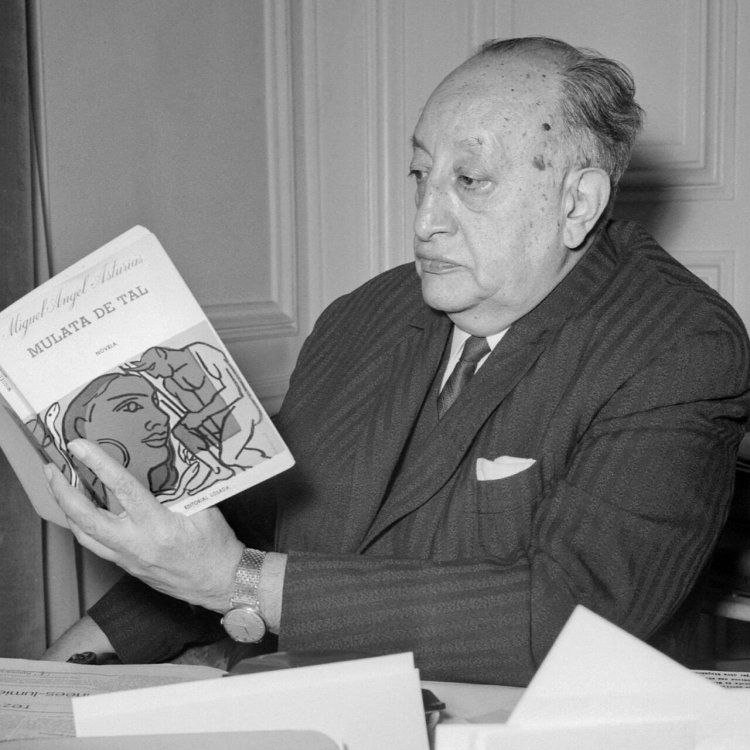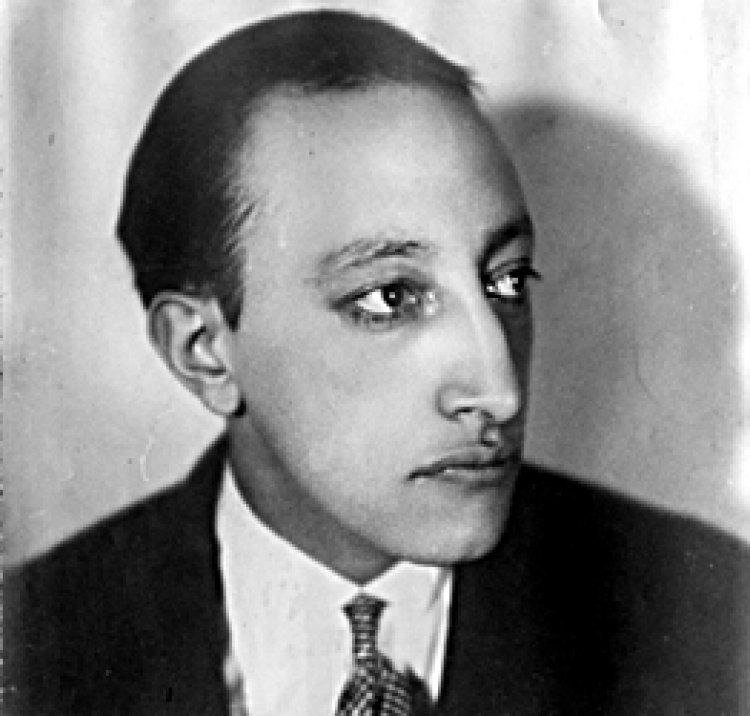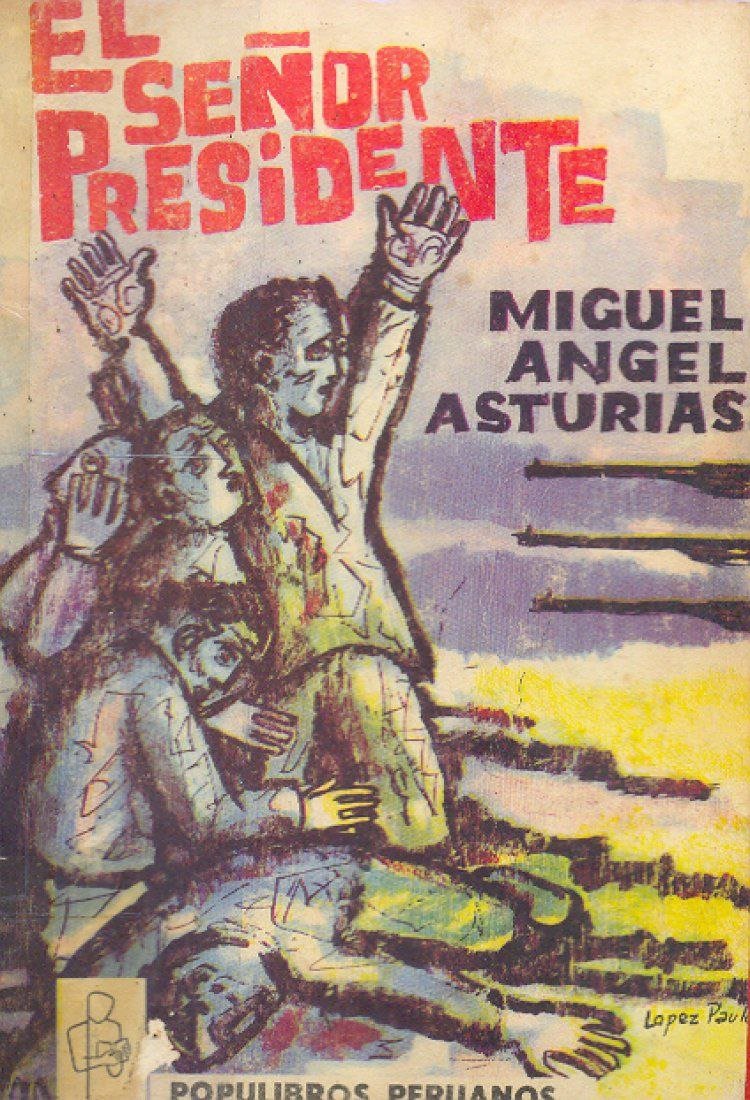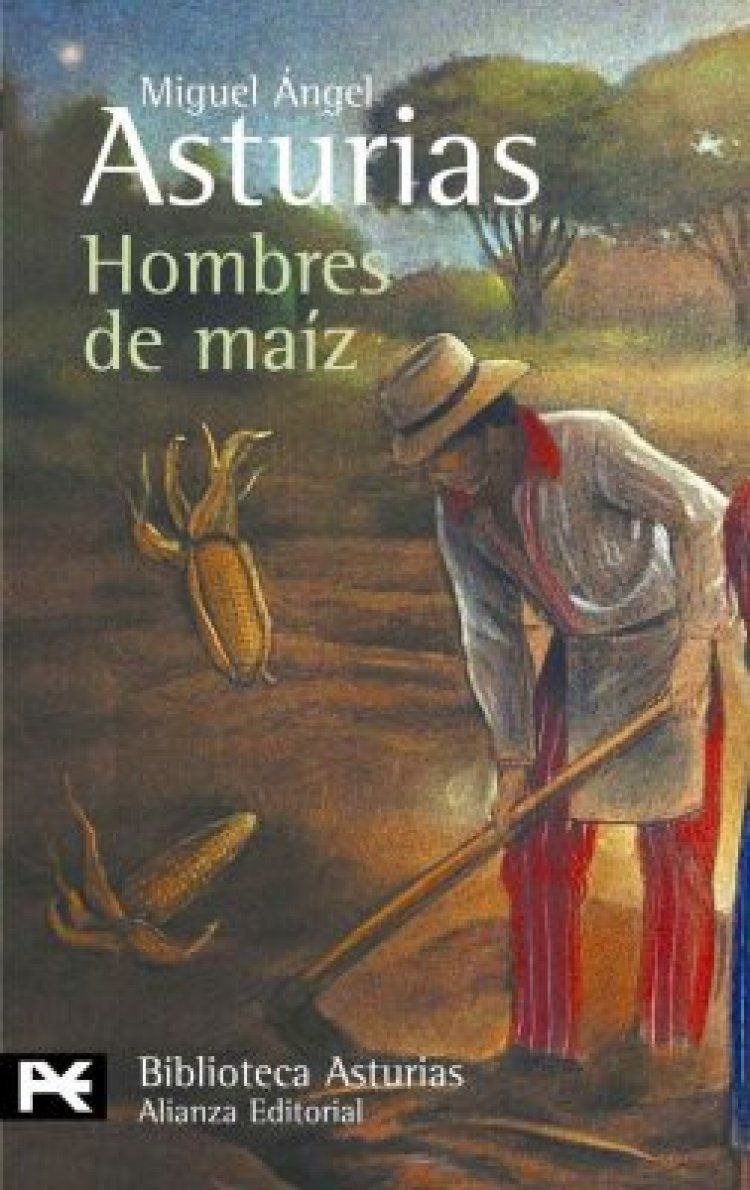Guatemalan author, Miguel Angel Asturias Rosales

Rewiwed by: Wafaa El-houseiny
Translated by: Nouran Salah Eddin
Guatemalan author, Miguel Angel Asturias Rosales
The great Guatemalan author, Miguel Angel Asturias Rosales was born in Guatemala in the 19th century 1899. Asturias combined being a poet, a novelist, a playwright, a journalist, and a diplomat. He was considered one of the heroes of Latin American literature in the 20th century as he adopted the idea of renewing the magical narrative and realistic techniques which crystallized later and established the " Boom" movement in Spanish-American literature in the 1960s.

Asturias studied law at the University of San Carlos in Guatemala where he participated in the struggle against the dictatorship of “Estrada Cabrera” until he was toppled in 1920. Two years later, he established and ran the People’s university, and at the same time, he began publishing his first writings. He then traveled to Europe where he approached closely the literary movements and intellectual currents that took part in forming and enhancing his literary talent. There, he studied Mayan linguistics and Anthropology at Sorbonne University with the American George Reno.
In 1933, he returned to Guatemala where he taught at the university and founded a magazine called “El Diario del Aire”, which is considered the first broadcasting magazine. That was Asturias's life, a life full of cultivation and academia. During the revolutionary period between 1944 and 1954, Asturias held different diplomatic posts. In 1966, he received the Lenin Peace Prize. In addition, in 1967, he received the Nobel Prize in literature.
The first literary work Asturias excelled at was “Leyendas” Legends in Guatemala (1933) de Guatemala, which is a collection of magical and legendary tales that appeared in Paris with an introduction to Paul Valéry. In addition to other novels like “El Señor Presidente” Mr. President (1946) and “Hombres de maíz” Man of Maize (1949). He also wrote “Week-end en Guatemala” Weekend in Guatemala (1955), “El espejo de Lida Sal” The Mirror of Lida Sal (1967), and “Tres de cuatro soles”. Moreover, he wrote several literary works that varied between fiction, theatrical, and other works.
Regarding his famous novel “El Señor Presidente” Mr. President, it was famous because it tackled life in Guatemala during the dictatorship of “Estrada Cabrera”. He excelled in representing the idea of dictatorship in a rich style and expressive technique that reflected the impact of the period he lived in Europe. The author said of this novel: “The atmosphere of fear, insecurity, and panic reflected in this work affected me profoundly”.

As for his novel “Hombres de maíz” Man of Maize, you can see in it the magical realism underlying his literary creativity. He also represents an example of humanity’s evolution from a primitive and illiterate society, in addition, to the current liberal and capitalist world.

The politician Asturias was a political activist. During his exile to Buenos Aries, he made many tours in Latin America, India, China, and the Soviet Union, in which he was an active lecturer, a conscious witness recording the events of the age, and a fighter against the alliance policy. Asturias standing alongside Castro led to his expulsion from Argentina in 1962. He then returned to France where he was received warmly. After that, he visited Moscow where he received the Lenin Peace Prize in 1966 before receiving the Nobel Prize in 1967. When he was appointed as an Ambassador to Paris by the government of Méndez Montenegro, he organized a great exhibition at the great palace "Le Grand Palais" on Mayan heritage by an initiative from André Malraux, the French Minister of Culture, at that time, and received recognition from Sorbonne University in 1968.
Near the end of his life, Asturias participated in the Helsinki Peace Conference and in the University of Dakar’s “Collége de Dakar” talks on negroes and Latin America. He insisted on the necessity of creating an international understanding of the legitimacy of Mulatto Cultures.
Asturias passed away in Madrid on June 9, 1974. He was at the top of his activity and generosity, especially after gifting his manuscripts to the National Library in Paris, which held a solemn memorial service for him.
